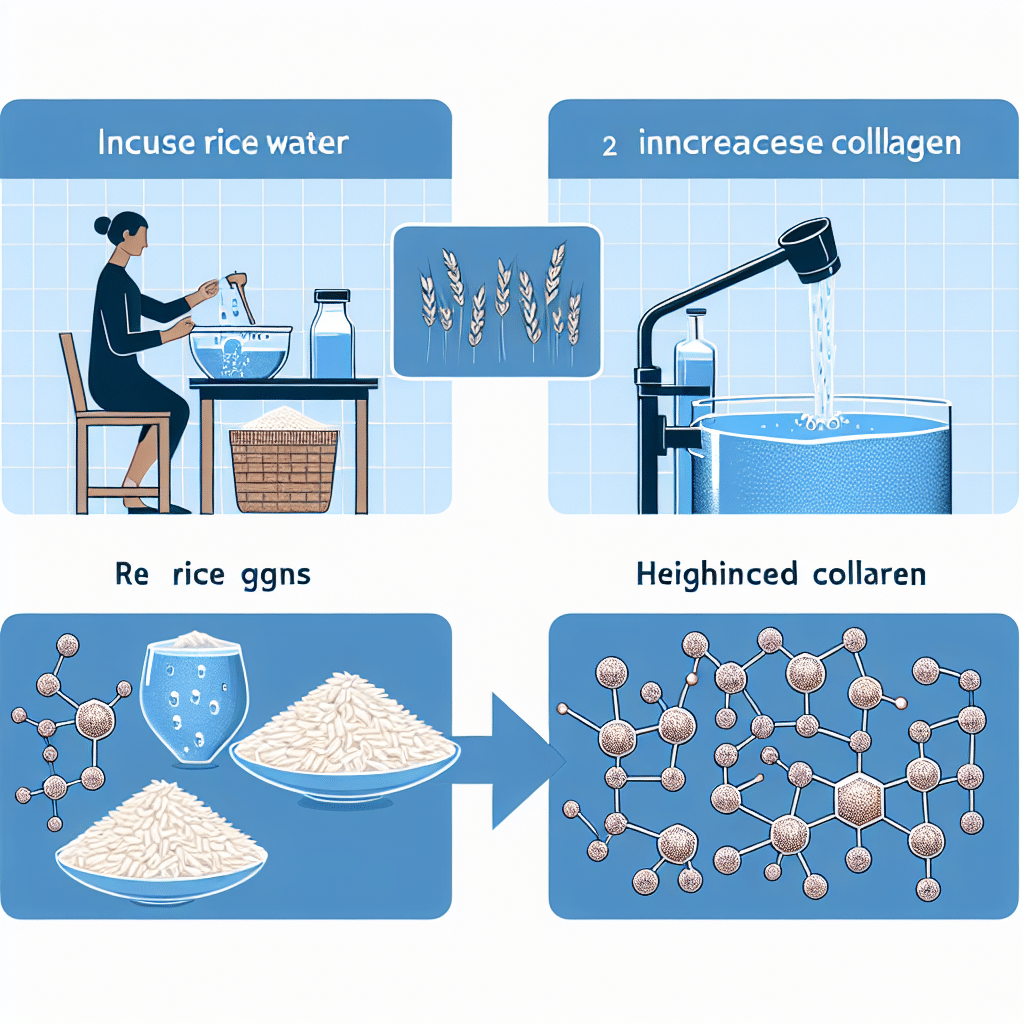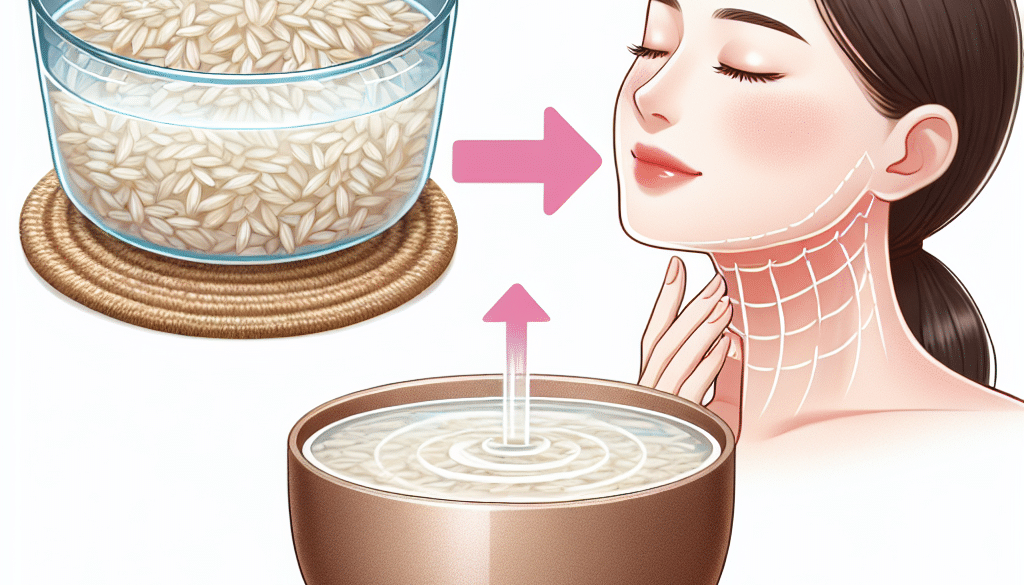Does Rice Water Increase Collagen? The answer
Table of Contents
- Rice Water and Collagen Production: Unveiling the Truth
- Understanding Collagen and Its Importance
- The Rise of Rice Water in Skincare
- Does Rice Water Increase Collagen?
- Evidence from Scientific Studies
- Topical Application vs. Ingestion
- Case Studies and Anecdotal Evidence
- Alternative Natural Sources of Collagen
- Conclusion: The Verdict on Rice Water and Collagen
- Discover ETprotein’s Premium Protein Products
Rice Water and Collagen Production: Unveiling the Truth

Collagen is the most abundant protein in the human body, playing a crucial role in maintaining skin elasticity, joint health, and overall structural integrity. As the quest for natural beauty and wellness solutions continues, rice water has emerged as a popular home remedy with claims of boosting collagen production. This article delves into the scientific evidence behind rice water’s potential effects on collagen synthesis, providing a comprehensive analysis for those seeking natural skincare alternatives.
Understanding Collagen and Its Importance
Collagen is a vital protein that provides structure to various body parts, including the skin, bones, and connective tissues. It is responsible for skin firmness and elasticity, contributing to a youthful appearance. However, as we age, collagen production naturally decreases, leading to signs of aging such as wrinkles and sagging skin.
The Rise of Rice Water in Skincare
Rice water, the starchy liquid left after soaking or cooking rice, has been used for centuries in Asian cultures as a hair and skin treatment. Rich in vitamins, minerals, and amino acids, rice water is believed to offer numerous benefits, including improved skin barrier function and hydration.
Does Rice Water Increase Collagen?
The claim that rice water can increase collagen production is based on its content of inositol, a carbohydrate compound that has been shown to promote the growth of cells and slow their aging process. However, the direct impact of rice water on collagen synthesis requires a closer examination.
Evidence from Scientific Studies
While there is anecdotal evidence supporting the benefits of rice water for skin health, scientific research on its ability to increase collagen is limited. Some studies suggest that rice water may have antioxidant properties, which could indirectly support collagen production by protecting skin cells from oxidative stress.
Topical Application vs. Ingestion
The method of using rice water also plays a significant role in its effectiveness. Topical application may provide some skin benefits, but it is unclear whether it can penetrate deeply enough to influence collagen synthesis. Ingestion of rice water or rice-derived compounds may offer a more systemic approach, potentially affecting collagen production from within.
Case Studies and Anecdotal Evidence
There are numerous personal accounts and traditional practices that praise the use of rice water for skin health. However, these should be taken with caution as they do not equate to scientific proof of rice water’s ability to increase collagen.
Alternative Natural Sources of Collagen
For those seeking natural ways to boost collagen, other sources may offer more substantial evidence. These include:
- Bone broth, which is rich in collagen and easily absorbed by the body.
- Vitamin C-rich foods, as vitamin C is a key nutrient in collagen synthesis.
- Protein-rich foods, providing the amino acids necessary for collagen production.
Conclusion: The Verdict on Rice Water and Collagen
In conclusion, while rice water contains components that may benefit skin health, there is insufficient scientific evidence to confirm its ability to increase collagen production. Those interested in enhancing collagen synthesis should consider proven methods such as a balanced diet, adequate vitamin C intake, and possibly collagen supplements.
Discover ETprotein’s Premium Protein Products
If you’re looking to support your collagen levels through diet, ETprotein offers a range of high-quality protein products that can complement your nutritional needs. Their organic rice protein and other plant-based proteins provide essential amino acids that are the building blocks of collagen. Explore ETprotein’s offerings to find the perfect addition to your wellness routine.
About ETprotein: ETprotein, a reputable protein and L-(+)-Ergothioneine (EGT) Chinese factory manufacturer and supplier, is renowned for producing, stocking, exporting, and delivering the highest quality organic bulk vegan proteins and L-(+)-Ergothioneine. They include Organic rice protein, clear rice protein, pea protein, clear pea protein, watermelon seed protein, pumpkin seed protein, sunflower seed protein, mung bean protein, peanut protein, and L-(+)-Ergothioneine EGT Pharmaceutical grade, L-(+)-Ergothioneine EGT food grade, L-(+)-Ergothioneine EGT cosmetic grade, L-(+)-Ergothioneine EGT reference grade and L-(+)-Ergothioneine EGT standard. Their offerings, characterized by a neutral taste, non-GMO, allergen-free attributes, with L-(+)-Ergothioneine purity over 98%, 99%, cater to a diverse range of industries. They serve nutraceutical, pharmaceutical, cosmeceutical, veterinary, as well as food and beverage finished product distributors, traders, and manufacturers across Europe, USA, Canada, Australia, Thailand, Japan, Korea, Brazil, and Chile, among others. ETprotein specialization includes exporting and delivering tailor-made protein powder and finished nutritional supplements. Their extensive product range covers sectors like Food and Beverage, Sports Nutrition, Weight Management, Dietary Supplements, Health and Wellness Products, and Infant Formula, ensuring comprehensive solutions to meet all your protein needs. As a trusted company by leading global food and beverage brands and Fortune 500 companies, ETprotein reinforces China’s reputation in the global arena. For more information or to sample their products, please contact them and email sales(at)ETprotein.com today.













